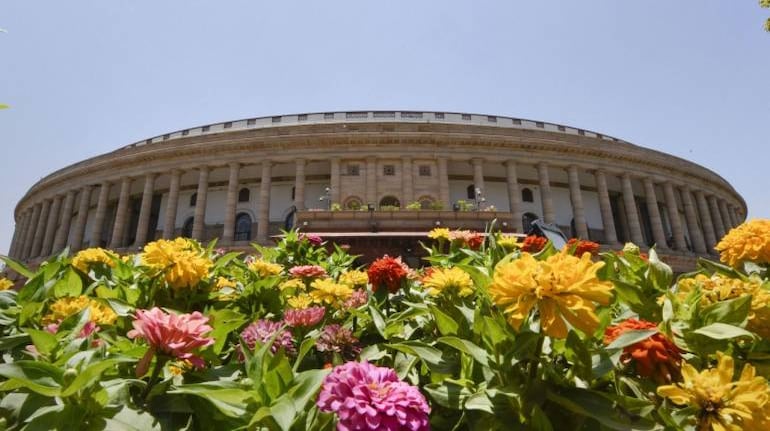



The Lok Sabha Secretariat on Friday issued guidelines on holding meetings of parliamentary standing committees with the physical presence of members in Parliament House with some restrictions, as the government explores the possibility of convening the monsson session in August-end or September amid the coronavirus pandemic.
In view of the COVID-19 outbreak, chairpersons of various panels had requested both Lok Sabha Speaker Om Birla and Rajya Sabha Chairman Venkaiah Naidu for holding virtual meetings, but were not granted permission.
In its guidelines, the Lok Sabha Secretariat said, "With further relaxations in the lockdown made with effect from July 1, the sittings of the parliamentary committees can now be held while observing some restrictions."
The secretariat has instructed that seating arrangement in the committee room may be made strictly adhering to the social distancing norm of six feet. Arrangements should be made for sanitiser at the entrance of the committee room.
No printed material should be used for the purpose of sitting and all documents related to the sitting should be sent to the members in soft form, the Lok Sabha secretariat said, adding that the ministry/department appearing for the evidence before the panel is advised against bringing any material, including annual reports or bags for the members.
"Ministry/Departments appearing before the committee may be advised to restrict the number of officials to a maximum of five," the notification reads.
In case a ministry is compelled to bring more officials, arrangements may be made for their sitting in the lobby, it said.
The secretariat has also restricted the entry of its officials for verbatim recording of the standing committees meetings and has rather instructed to make arrangements for audio recording of the meetings.
Sources said meetings of parliamentary committee is an exercise to make Parliament ready for holding the monsoon session with physical presence of members.
They further said both Birla and Naidu have held several rounds of discussions on how to hold the monsoon session amid the COVID-19 pandemic.
The government is exploring the possibility of holding the monsoon session of parliament starting from last week of August or first week of September with the physical presence of members during proceedings, sources said on Wednesday.
However, sources said in the wake of rising cases of coronavirus nothing has been finalised yet and it is will be difficult to specify how the session will be held while adhering to social distancing norms.
Parliament stopped functioning on March 23 after the budget session was adjourned sine die prematurely due to the COVID-19 pandemic.
It resumed functioning this week with a meeting of the Committee on Welfare of Other Backward Classes (OBCs) in Parliament Annexe.
Discover the latest Business News, Sensex, and Nifty updates. Obtain Personal Finance insights, tax queries, and expert opinions on Moneycontrol or download the Moneycontrol App to stay updated!
Find the best of Al News in one place, specially curated for you every weekend.
Stay on top of the latest tech trends and biggest startup news.